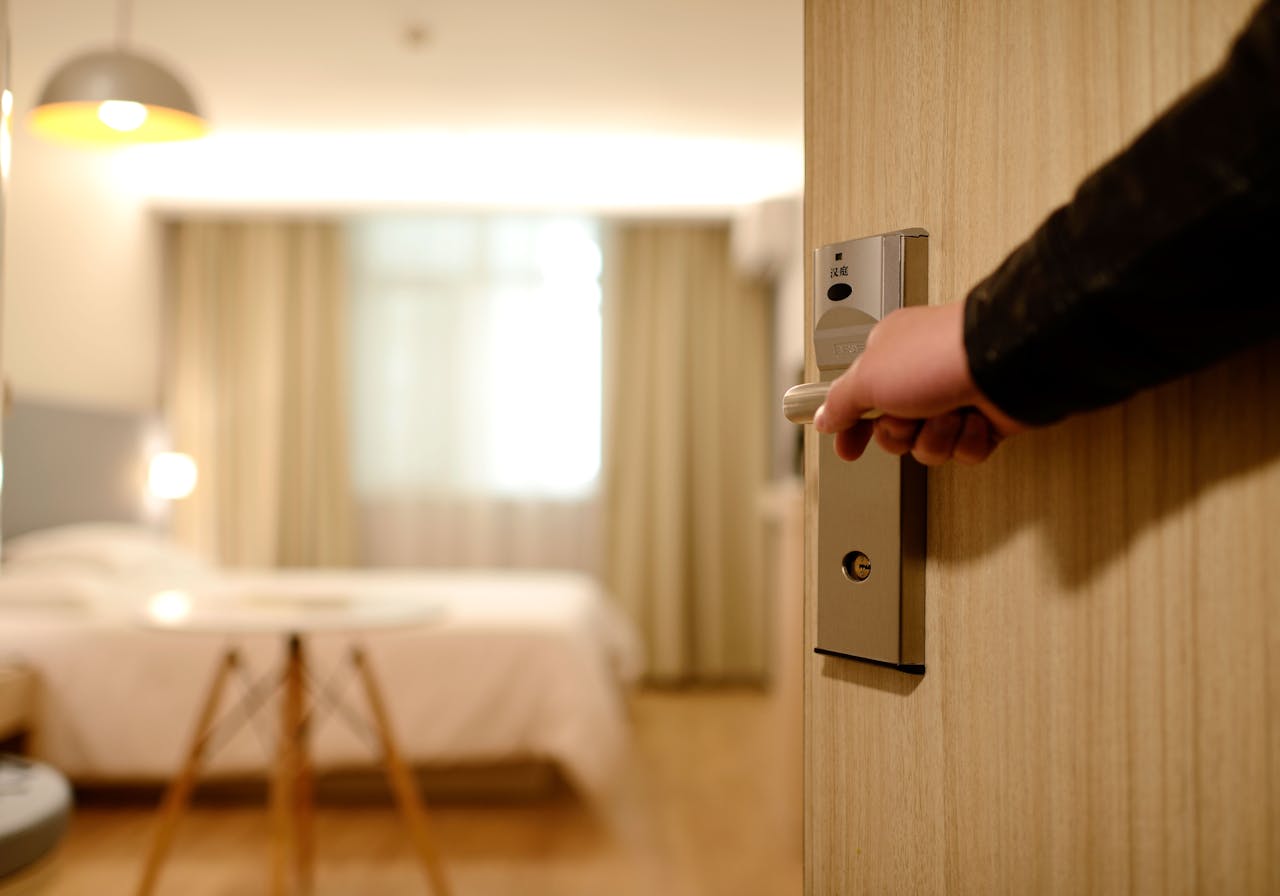
Body + Mind is reader-supported. We may earn an affiliate commission when you buy through some of the links on our site.
The ability to travel is shared by a fortunate sector of the population, and doing so as part of your job is an incredible perk. If you’re one of those who can choose your accommodation when traveling for work reasons, you have a greater responsibility than only conferences and business meetings.
What is low-carbon travel? It means balancing the enjoyment and necessities within your working travel with sustainable transportation, dining and living practices throughout your trip. Supporting environmentally friendly accommodations allows you to contribute to these sustainability efforts that are ongoing across the globe today.
The hotels, resorts and guest houses that institute eco-friendly practices are part of these carbon-neutral efforts and deserve all the support and promotion you can give them. What is low-carbon accommodation, and how can you tell if your temporary residence conforms to accepted carbon-neutral standards?

In the hospitality sector, low-carbon accommodation, or carbon-neutral accommodation, refers to commercial residential enterprises implementing practices to reduce carbon dioxide emissions within their establishments. Carbon dioxide is a greenhouse gas released into the atmosphere by volcanic eruptions and when humans cut down trees and burn fossil fuels.
These situations contribute to climate change worldwide, and by reducing your carbon footprint, you can do your part to slow this hazardous and destructive process. Many hotels, resorts and guest houses have adopted procedures to reduce these carbon emissions.
The World Sustainable Hospitality Alliance is driving an initiative for its member organizations to cut carbon emissions by 66% by 2030. With 32 major hotel groups as members, these efforts cover 55,000 properties and over 7 million rooms worldwide. Although these are not the only commercial establishments with sustainable practices, they form prime examples of low-carbon accommodations.
Firstly, if your hotel group is part of the World Sustainable Hospitality Alliance, you can be sure it conforms, but it’s better to know for yourself what conforming entails. There are several things to look for, both before you book and on your arrival:
Your most significant indicator before booking is to inspect the hotel’s website. Suppose the commercial entity belongs to a group like the World Sustainability Hospitality Alliance or displays eco-labels or logos from another established sustainability-driven organization. In that case, you can be satisfied it conforms to set parameters. If you still have questions, access the organization’s website.
Many smaller enterprises might be waiting to receive official recognition. As such, they’re still to be officially mandated, but looking through their websites could provide clues about their eco-friendly practices. Some will include official documents detailing how they apply sustainability initiatives, while others may describe this carbon-neutral proactivity in their room and facility descriptions.
If a guest house describes its recycling procedures or uses LED lighting, solar panels, or high-efficiency washing machines, you’ll have a good idea it’s green-friendly. Check the venue’s sustainable heating policy if you’re from a warm climate and will travel in winter. Another tip is to ensure easy access to reusable bottles of water and healthy snacks as backup to keep you nourished and hydrated during your stay in a different climate.
The more eco-friendly qualities the website mentions, the better. Also, look for a Green Guest accord on the website, which details how guests can be more environmentally aware during their stay. This charter is a big clue regarding the venue’s sustainability motivations.

You can likely tell a lot from the accommodation’s website photographs, but seeing the venue’s building and grounds on arrival will tell you much more. Does the building gel with the surrounding environment? Is there much natural vegetation and bird life surrounding it?
These are all potential eco-friendly indicators. Some hotels have been in the exact location for decades, so at face value, they may need more work to look eco-aware. That doesn’t mean the owners haven’t incorporated more recent initiatives. You’ll tell if any renovations are recent and environmentally proactive or the opposite. Also, watch for the establishment’s Energy Performance Certificate prominently displayed somewhere.
Low-carbon accommodations will include a few telltale signs in their guest rooms. The bed linen will likely be made from organic cotton, and reclaimed or upcycled furnishings will dominate the room. You’ll see instructions for eco-friendly air conditioning practices and an HVAC chart indicating its regular servicing and cleaning dates. There’ll also likely be reminders to switch off the air conditioner and television when not in use.
Is the hotel solar-powered? There may be wind turbines on the property. Are there low-flow water savers for efficiency on showers, taps and toilets? They may have a rainwater tank outside. These factors, along with the presence of LED lighting and motion sensors, all highlight the establishment’s commitment to sustainable living and are all positives if you’re looking to spend your time after work in an eco-friendly environment.
An accommodation venue that visibly encourages the ‘reduce, reuse, recycle’ policy and has separate recycle bins for guests in foyers and rooms is on the right track environmentally. It’s well on the path if it provides you with reusable straws, doesn’t issue single-use bottles and has bulk dispensers filled with organic soap and shampoo in the bathrooms.
Sustainable hotels will boast about their restaurants’ local food and how their suppliers grow it organically. They will have suggestions on low-carbon travel alternatives for their guests and might even offer bicycles or electric vehicles for use. Many employees will be locals, and more will be in training. Finally, somebody will ask you to sign a guest register on leaving and request you leave a comment on your stay and the carbon-neutral services they provide.

With more sustainable guest accommodations operating than ever, you don’t have to look as far for one as you used to. The world around you is changing, and hopefully, the venues you’ll frequent for your business meetings or conferences will be as well-picked as the accommodations you choose. If you’re having your stay booked by somebody else within your organization, maybe mention you’d like to spend your working trip as sustainably as possible.
Your email address will only be used to send you our newsletter, and at any time you may unsubscribe. For more information, see our Privacy Policy.